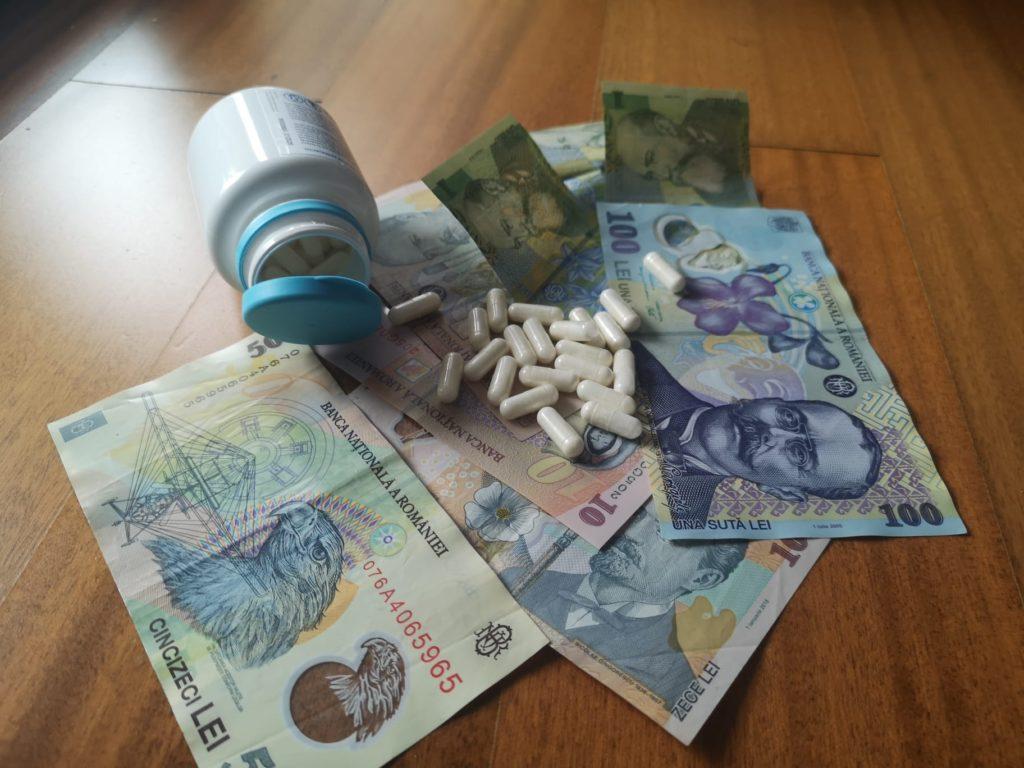On October 30th 2015 the Collective nightclub in Bucharest completely went up in flames in a matter of seconds, as “the fireproof and emergency exit-equipped building” turned out only real in the project documentation. As if the 27 deaths from the fire tragedy weren’t enough, 37 more burn victims died in hospital in the days and weeks after, mainly due to multi-drug resistance bacterial infections. October 30th thus marks a day of national mourning in Romania. But it was also the beginning of the country’s fight against nosocomial infections (i.e. infection(s) acquired during the process of receiving health care that was(/were) not present during the time of admission). In this blog, I’ll shed some more light on this underreported story and the current situation.
According to a 2016 report by the National Institute of Public Health, nosocomial infections in Romania are underreported and possibly underdiagnosed, with Romania ranking in the red zone for both (excessive) antibiotic usage and prevalence of drug-resistant bacteria. This shows the critical and urgent need for reform of Romania’s healthcare system. Indeed, the fact that so many additional victims died from nosocomial infections with multi-drug resistant bacteria àfter the fire (as highlighted in the Oscar nominated documentary Collective), serves as a grave reminder of the deep-rooted corruption in the country’s health system. Together with the low quality and hugely underfunded medical facilities ( Romania spends less than 5% of GDP on healthcare, far less than other EU countries), this has led many medical professionals to migrate towards better working conditions in Western Europe.
So reform of the Romanian health care system is long overdue, if only to do something about Romania’s ranking in the Economist as “the EU’s worst”!
Underreporting of nosocomial infections
Nosocomial infections are typically flourishing in poor healthcare infrastructure. The issue is further exacerbated in Romania by the lack of screening procedures and clear policies on how to prevent them. Many issues concerning nosocomial infections were brought to light in recent years, including the presence of superbug colonies in hospitals and the fact that for many years, hundreds of Romanian hospitals purchased expensive, heavily diluted disinfectants from the local manufacturer Hexi Pharma, which were unfortunately unable to eradicate harmful hospital bacteria.
On paper, many Romanian hospitals appear to be in excellent condition, yet it’s clear that underreporting is a major cause of hospital-acquired illnesses. Management of hospitals with high rates of nosocomial infections are penalized, therefore they are incentivized to conceal them. Recently, the manager of the nation’s leading hospital for lung diseases has even stated that declaring nosocomial infections is “perceived as a punishment” by the medical staff. Go figure.
Is Romania learning from its mistakes?
Years after the tragedy, nosocomial infections continue to contribute significantly to mortality rates in a system devoid of antimicrobial resistance laws and regulations, as well as a clear surveillance and reporting system.
The Covid pandemic proved as much. Romanian officials documented zero incidences of hospital infections among Covid-19 patients since the start of the pandemic. A ludicrous claim. According to European research, even countries with far superior medical systems have registered healthcare-associated infections among COVID-19 patients. So all of a sudden Romania would have “outperformed” most other EU countries…?
As if to underline this, a recent tragedy took place at a maternity center in Cluj Napoca, a well-known medical city center, when four newborns lost their lives due to hospital-acquired infections. ‘We have at least four dead newborns, no one is taking responsibility, there’s complete silence at the Public Health District, while a frenetic inquiry is being launched by the Ministry of Health, led by a Minister of Health who is currently on a luxurious trip in Cuba.”, deputy Emanuel Ungureanu declared.
And so the Romanian system continues to fail its citizens. Sadly, the nation is well accustomed to medical scandals and pervasive corruption in an underfunded healthcare system hampered by inefficiency and politicized management. What, in fact, are the voices of the community saying? ‘Rafila, step into the 21st century!’, ‘Rafila, we have an epidemic of nosocomial infections, what are you going to do?’ ‘We call for a digitized system for reporting nosocomial infections.’ As Romanians have grown tired of witnessing injustices unfold in front of their eyes, Declic, a Romanian online lobbying network with over 1 million civil society members, has been waging a fierce battle to combat nosocomial infections. This latest appeal was addressed directly to the Minister of Health, Alexandru Rafila.
High time for the young generation
During my practice as a pharmacist, I became aware of how volatile the medical system was, about the vested political interests, and how I was just a ‘pawn’ on a chess board surrounded by ‘Kings and Queens’. This strongly motivated me to pursue the Public Health programme at Lund University, and learn about a robust system like Sweden’s. This will allow me to return to Romania and be part of the policy-making process, with a newfound commitment for reducing health inequities and the ability to create actual improvements in the healthcare system.
Due to the young generation’s growing voice, I think there is still hope for Romania to turn things around.
